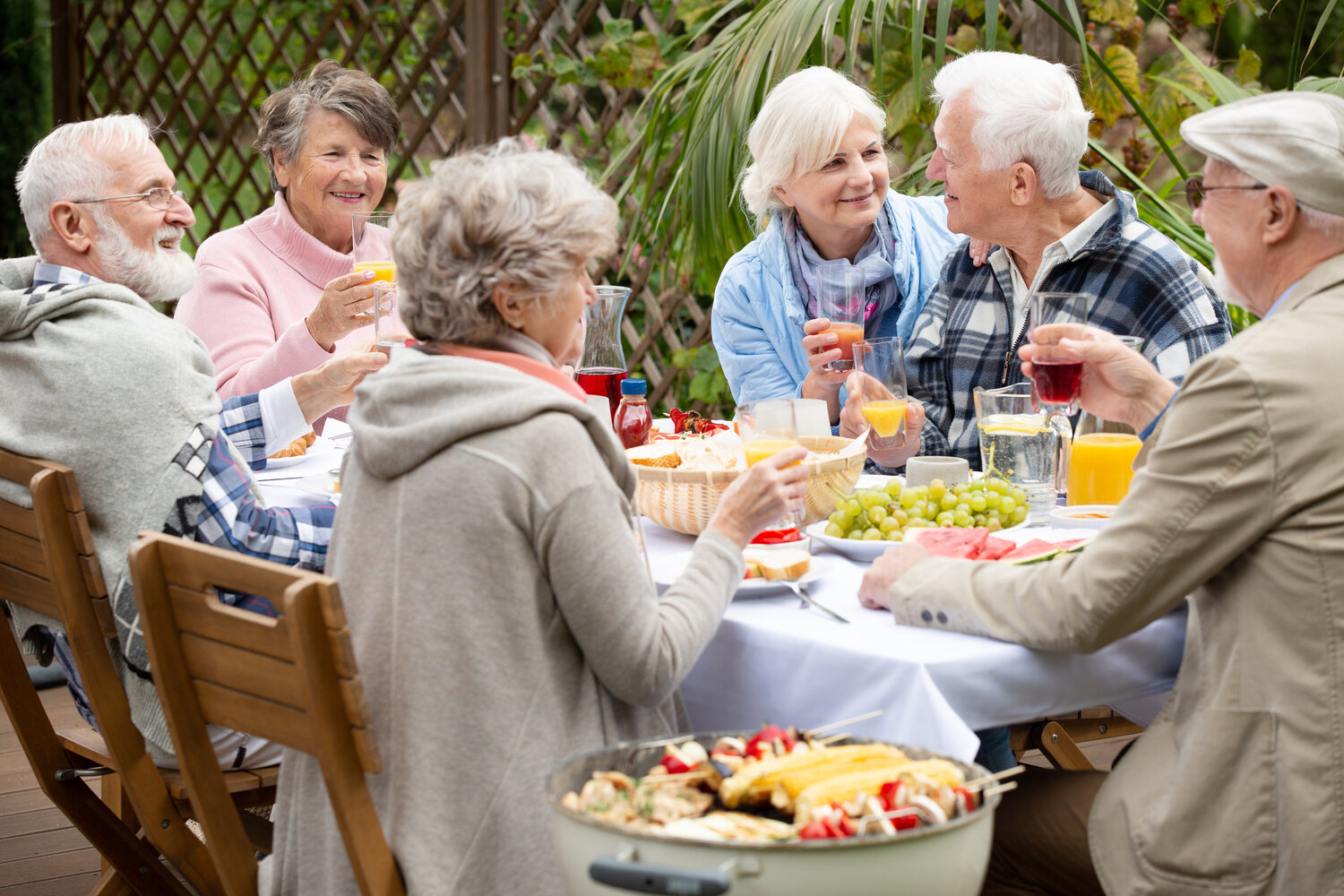Healthy living for senior citizens is a concept that encompasses almost every aspect of daily life. Everything from sleeping and eating habits, to vitamins and medications, and even activity levels and living arrangements all affect health. Arguably, though, the largest epidemic affecting senior citizens, as well as everyone else, is obesity. Senior citizens make up a larger percent of the population than ever before, and the trend shows no signs of reversing or even slowing down. It is becoming more and more important to understand how we can help seniors live better, healthier lives.
Weight is a large health concern. Just as it is with any other age group, weight contributes to a great deal of health problems. Joint pain, high blood pressure, problems arising from poor circulation, and breathing problems are just a few. For most of these, though, they symptoms lessen, and even sometimes disappear, as the weight comes off. There are two main types of weight loss programs, each of which holds their own risks and benefits:
Surgical Intervention:
Bariatric surgery has seen an astronomical rise in popularity. Though the different versions carry a great many risks, certainly more than traditional weight loss techniques, weight loss surgeries also offer a greater chance of significant success. By controlling how much can be eaten, the calories are drastically reduced and weight drops off. The two biggest benefits of these programs is that the weight loss is faster and often more significant that can be obtained any other way. It should be noted, however, that not everyone, senior or otherwise, is a candidate for bariatric surgery.
The risks of surgeries, though, are long and numerous. Common complications of weight loss surgery include nausea, pain, vomiting, dehydration, mal-nutrition, and the necessity for further operations. Though the initial thought was that seniors had a higher risk of complications, that has been proven to be untrue. Age alone does not seem to affect the outcome of these surgeries and a senior with the same health problems as someone half his or her age has the same chances of coming through the surgery with no complications as the younger one does.
Lifestyle Changes:
Lifestyle changes are, perhaps, the best way for anyone to lose weight. They encompass a wide range of areas and help a person to learn better habits. There are no health complications associated with these forms of weight loss, and they are universally adaptable. Sleeping habits, food consumption, and activity levels are things that are the easiest to change.
Seniors, as a general rule, tend to sleep less than any other age group. This affects the body in many ways, and the inability to fuel itself properly is one of them. A simple sleep aid, or a comforting night-time routine can help change sleep patterns and aid the body’s natural processes.
The foods we eat are a reflection of more than our tastes. They reflect our geographical and social origins, as well as our economic standing. It is a known fact that the wrong foods contribute highly to weight gain and retention. Using sugar substitutes, low-fat alternatives, and even taking vitamins are great ways to start curbing food related weight issues.
The ability to move, to be around other people and enjoy small things are some of life’s greatest gifts. Movement is the most effectual way to eliminate excess weight. A walk, small exercises done at random times throughout the day, or a weekly chess game are all legitimate ways to start getting rid of unwanted pounds.
Healthy living is, admittedly, more than being physically healthy. Emotional and social needs must be met as well as the needs for food, water and shelter. Great strides have been made in an attempt to meet these needs for our ever-increasing population of senior citizens, but there is always something more that can be done.
